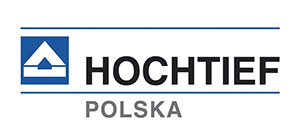A pioneering project on the European waste management market implemented with the participation of the HOCHTIEF companies
Poznań Energy from Waste (EfW) will be managed by the SUEZ Zielona Energia company for the next 25 years. The EfW plant is Poland’s first project implemented in the formula of the Public-Private Partnership in the waste management sector. A public partner of this investment is the City of Poznań, and the SUEZ Zielona Energia company fully acts as a private partner. In order to execute the engineering and civil works, SUEZ Zielona Energia selected a consortium of two companies: in terms of the construction technology – the Hitachi Zosen Inova company, and for the civil works – the HOCHTIEF Polska and HOCHTIEF Solutions companies. The works executed by the HOCHTIEF companies included design and construction of industrial buildings, internal and associated road infrastructures together with systems. The work execution was completed in the scheduled time. The engineering work (along with necessary arrangements and obtaining formal and legal permits) began in the second quarter of 2013 and ended in the second quarter of 2014. After them followed the civil (networks, buildings, and roads) and assembly works (process), which ended in March 2016, and this allowed for the completion of tests and trials (cold and hot) in November 2016. December 29, 2016 was announced to be the First Accessibility Day. This was possible thanks to the EfW plant previously obtaining an integrated permit, an operations permit, and a positive result of the inspection conducted by the Wielkopolskie Voivodeship Environmental Protection Inspector. The EfW plant was constructed on the plot of land of 31,419 square metres whereas the constructed area was 11,535 square metres. The green areas occupy 4,158 square metres. The construction of the plant in total consumed 19,000 cubic metres of field concrete and 3,000 t of reinforcement steel.
The EfW plant is an investment with a unique nature. This is determined by not only the formula of implementation and the manner of funding adopted by the public and private partners, but also the applied engineering and civil solutions. One of them concerns the construction of a concrete waste bunker, which is one of the main elements of the EfW process line. Its walls occupy approximately 13,000 square metres, and their height reaches 35 m. The scope of works also included the execution of the communication pylon, whose walls are 43.5 m high. The construction of the waste bunker with the pylon lasted approximately five months. The entire structure of the bunker was made of reinforced concrete, also specialised sliding formwork was applied for its implementation. The slide of the facility was constructed to its full height in two stages, in 33 days in total, in the 24-hour cycle, with a two-week break for rearrangement of formwork. The constructed waste bunker is a reinforced concrete box with dimensions in the projection of 16.30 x 35.30 m, a depth of 8 m, and a waste storage height of 20 m. When constructing the structure in slide formwork, approximately 4,300 m cubic metres of the concrete was consumed. In the next stage of work, the steel structure of the building of boilers with the process lines were assembled, and the reinforced concrete structure of the administration building was executed.
Annually, the EfW plant in Poznań will produce electricity and heat from approximately 210 thousand tonnes of waste originating from the area inhabited by over 740 thousand people. The thermal energy generated during incineration of waste, via the Karolin Combined Heat and Power Plant, will be supplied to the residents of Poznań. The plant will also provide the national power grid with electricity.

